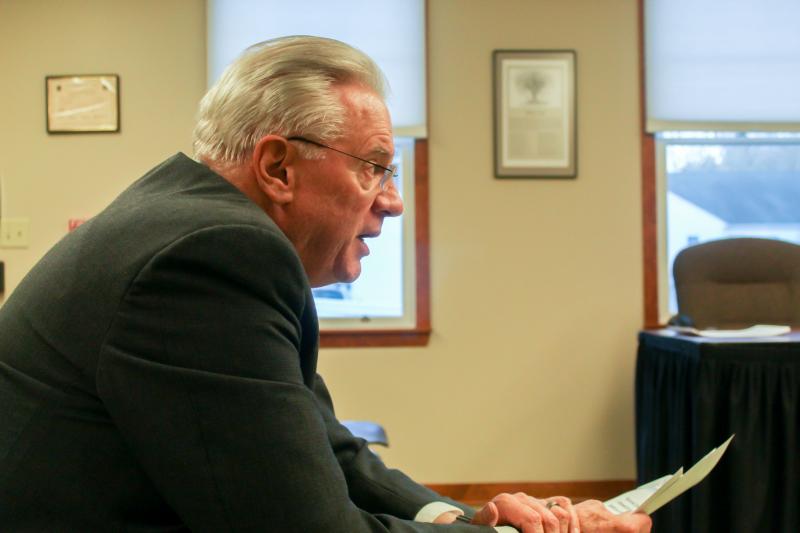Rochester Selectmen look at ‘energy aggregation’
ROCHESTER — The Rochester Board of Selectmen said the Rochester community should decide whether to negotiate on energy as a community rather than individually.
Good Energy Director of Marketing Northeast John P. O’Rourke came before the Selectman Monday to propose a community-based electricity aggregation plan.
The Board of Selectman agreed to bring his proposal to the public eye by sending the plan to the Town Meeting for discussion and approval.
Aggregation involves group purchasing and selecting an electricity supplier based on the recommendation of town residents and businesses.
According to O’Rourke, if residents aggregate and use Eversource, their relationship will not change and the company will continue to carry out their electricity services, distribute the electricity and provide consumers with a bill. The only change on the bill will be the name of the supplier.
If a person or a business does not want to be a part of the aggregation plan they can opt-out, said O’Rourke, giving them the freedom to select their own electricity company.
Aggregation also offers the town the chance to save as much as 3.27 cents per kilowatt hour, though O’Rourke noted that these savings are not guaranteed.
There are also options to make five or a hundred percent of the aggregated electricity from environmentally friendly sources.
O’Rourke said 122 municipalities in Massachusetts have approved municipal aggregation plans. He mentioned every other town in the Southeastern Regional Planning and Economic Development District (SRPEDD) is currently aggregating power.
Other recent aggregators are Boston and Worcester, the biggest municipalities in the state.
O’Rourke said aggregation would benefit Rochester because it is a smaller community. He said the plan also “protects residents from unscrupulous marketers who will phone you, mail you flyers, knock on your door with offers that look good at first, but quickly get crazy.”
O’Rourke explained there would be no out-of-pocket costs to Rochester residents and implementation would not require additional administrative work. The energy would also continue to be distributed by Eversource; only the source would change.
Aggregation agreements set energy rates at a fixed cost for three years, rather than changing costs every six months, as most energy providers do.
Rochester Town Counsel Blair Bailey approved of the plan “I have no issue with it. I’ve researched it.” Bailey said.
Rochester Town Administrator Suzanne Szyndlar had reached out to other communities about their participation and said the feedback was positive.
Chair Greenwood Hartley III estimated the process of implementing the plan into Rochester could take about a year, however O’Rourke believes it could take between six to nine months.
Still, Hartley believes the program will be good for Rochester.
“We don’t have the time to become experts, but I feel this is an opportunity we need to offer to our residents.” Hartley said.











